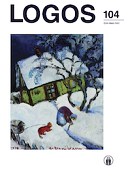L. François Jullieno trūkio (l’écart) ir atskirties (dé-coïncidence) koncepcija
L. François Jullien’s Concepts of the Gap (l’Écart) and Non-Coincidence (Dé-Coïncidence)
Author(s): Lina GotautėSubject(s): Contemporary Philosophy
Published by: Visuomeninė organizacija »LOGOS«
Keywords: François Jullien; French philosophy; comparative philosophy; l’écart concept;
Summary/Abstract: The paper discusses the complex of ideas presented in the newest postmodernist book „Dé-coïncidence. D’où viennent l’art et l’existence?“ (“Non-coincidence. Where do art and existence come from?”) by an influential French sinologist and representative of philosophical comparativism François Jullien. In the paper, attention is paid , on the one hand, to the analysis of contemplated awareness, freedom, living differently, and, on the other, common, banal yet comforting everyday slavelike dependence on norms and unaware existence, as well as other fundamental ideas and categories developed by Jullien. The author of this paper demonstrates that F. Jullien, applying a typical poststructuralists deconstruction principle, gives particular meaning to the analysis of the language and the text. In so doing, he emphasizes that both biblical myths and seemingly common and unquestionable Western cultural truths can be viewed in a different light and be interpreted, not by applying well-established (usually unquestionable) models, but, instead, by analyzing the deepest semantic meanings of the language and the text, without which the understanding of reality is incomplete, if not wrong. At the end of the paper, a brief overview of F. Jullien’s innovative ideas is presented not only to take a new look at truths that have turned into dogmas, but also to, in a sense, shock society and open their eyes to a deeper and more aware form of existence.
Journal: LOGOS - A Journal of Religion, Philosophy, Comparative Cultural Studies and Art
- Issue Year: 2020
- Issue No: 104
- Page Range: 206-214
- Page Count: 9
- Language: Lithuanian

